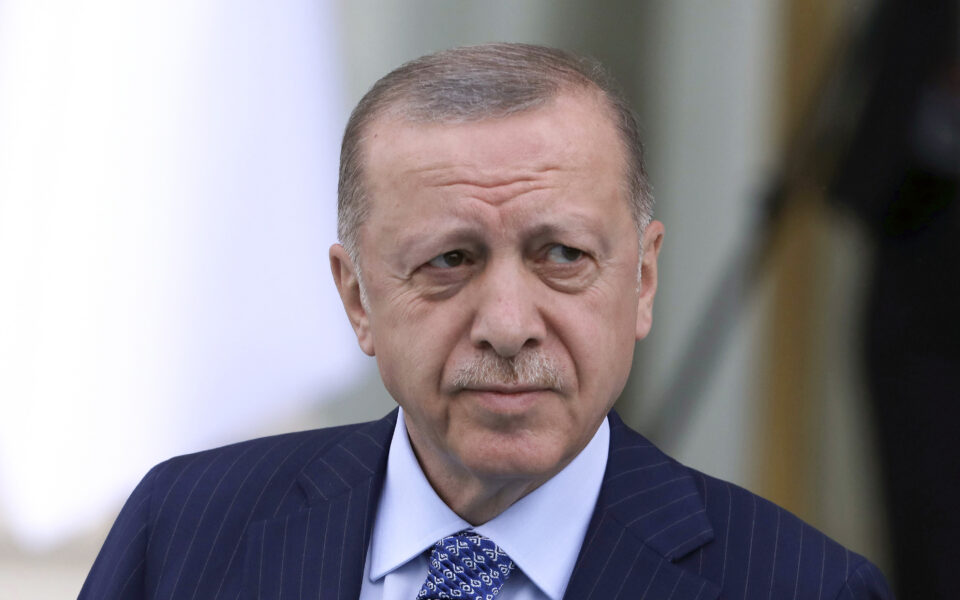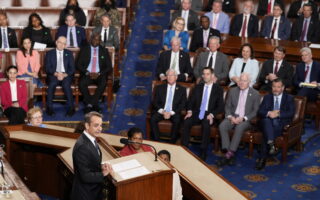Is liberal democracy in decline?

At present liberal democracy is not only in retreat, it is actually under siege. Think tanks like Freedom House have confirmed that we are now in the 16th year of consecutive decline in global freedom, assuming of course that democracy is the political system that provides the highest degree of freedom. We have experienced a wave of authoritarianism not only due to the fact that there is an increasing number of countries that are dictatorial or authoritarian and the influence that some of them have acquired in international affairs, but also because democracy in the democratic world has experienced a dramatic decline.
Not long ago, in the 1990s – that golden decade for both democracy and the Western world – the prospects for democratic expansion were so good that the American political scientist Francis Fukuyama went as far as to announce the end of history: a new era in which historical confrontations would cease as all countries eventually became democratic and rejected all other forms of government that would be globally considered as unfair and oppressive. But, as Karl Popper stated, facts are stubborn, and the fact is that democracy has been in retreat since 2006. Against the background of the last global financial crisis, we have witnessed the consolidation of authoritarian regimes in several regions of the world.
Vladimir Putin launched a new style of autocratic rule in Russia that could keep him in power for life, assuming of course that he manages to stay in power after challenging the Western world with the invasion of Ukraine. Hugo Chavez put an end to democracy in Venezuela, and under his influence and that of Castro’s Cuba, the Bolivarian revolution has subverted the principles of liberal democracy in a substantial part of Latin America. The glimmer of hope for democracy in North Africa and the Middle East created by the revolts of the so-called Arab Spring in 2010 rapidly vanished and we have seen dictators consolidate authoritarian regimes ever since. In the meantime, Turkey, for several decades a model secular democracy, has become a leading example of authoritarianism under the presidency of Recep Tayyip Erdogan.
The meteoric rise of China and its global role over the last two decades provides a very good explanation for this authoritarian wave. The most populous totalitarian regime in the world has signed economic agreements with many countries that have contributed to its steady growth, but unlike the European Union or the United States, which made economic aid conditional on democratization and human rights, China’s aid is politically unconditional. This explains why the number of authoritarian regimes prospering under China’s economic influence has increased so much. In parallel, China has launched a campaign to discredit democracy and convince leaders throughout the world that it is inferior to its own system. It has found the ideal platform to do this in the United Nations. At the UN Human Rights Council, which the United States left in 2018, Beijing has promoted the vision that no political system is superior, that it is up to each state to decide its political system and that for this reason, the principle of non-interference should prevail in international relations. This is an affront to what the liberal international order has been defending for the last century; it allows human rights violations to go unpunished while the formation of autocracies is being promoted.
The retreat of democracy can be understood in terms of power politics in the international sphere. As the global influence of the USA and the EU diminishes at the cost of that of China and Russia as well, then inevitably the prestige of dictatorial regimes will rise. But it would be misleading to attribute this exclusively to failed foreign policies of leading democracies – democracy is also retreating because of the diminishing prestige of the democratic world itself.
At a time when statesmanship is notably absent, the most extravagant promises proliferate with the aim of winning elections.
Leadership in the democratic world has reached unprecedentedly low standards. Traditionally, leadership of a country was only within reach of those whose professional and personal life had been truly exceptional. This was the general trend that explains such leadership as that of Abraham Lincoln, Winston Churchill, Charles de Gaulle and Konrad Adenauer. In the same way, being a cabinet minister or reaching the most senior ranks of a government used to be the culmination of excellence in a professional career. Is this really the case at present? The entrance barriers to politics have never been as low as the present. While it is difficult to access the top ranks in the public administration, academia, or the business world, it is comparatively easy to become a member of the ruling elite through party politics, where cronyism prevails over meritocracy, and where obedience counts more than excellence or integrity. Public life in liberal democracies has been impoverished because the political career no longer attracts the best talents in society.
Populism is the other explanation for the decline of democracy. It can be defined as the tendency of governments to appeal to popular support regardless of the consequences and it is linked with weak and mediocre leadership. While a statesman plans for the next generation, a politician plans for the next four years. At a time when statesmanship is notably absent, the most extravagant promises proliferate with the aim of winning elections, or referendums, which are always popular among populist leaders, even if these promises are unsustainable or provoke irreparable damage to a country in the long run. Populism has not only transformed solid democracies into failed states, it is also behind the increasing attacks on the checks and balances that allow democracy to work, like the independent judiciary, freedom of expression, religious freedom and minority rights.
Wokism and cancel culture is another manifestation of the crisis of liberal democracy. This is the result of an extremist interpretation of political correctness by which there can only be one way of thinking in democracy, usually along the lines of those in power or a predominant cultural trend, and, as a result, those who express different opinions must be ostracized or eliminated from the public sphere. This tendency has been particularly dangerous in the press and the academic world, which can only thrive if there is freedom of expression. Wokism has been responsible for radical demonstrations that culminated with toppling statues of historical figures who were accused of representing sexist or racist beliefs. From David Hume to Thomas Jefferson, several major contributors to the history of liberal democracy have been demonized by this 21st century inquisition, just as living citizens are demonized by an emerging ministry of truth if they do not obediently follow its doctrines. This is contrary to the essence of liberal democracy based on a diversity of opinions and free speech.
Post-truth is also responsible for democratic decadence. This is a new phenomenon in which objective facts no longer shape public opinion and are replaced by emotions, personal beliefs, or simple lies. Internet technology is largely responsible for this, as it spreads all kinds of information without ranking its importance or assessing its veracity, as traditionally the press used to do. Social media allows the propagation of lies at an incredible speed as well as all kinds of beliefs and emotions that can affect an electoral process. Information overload is killing the information era, with the rationalism and evidence-based knowledge associated with it, which constituted the cornerstone of liberal democracy.
In several countries, liberal democracy is losing the liberal aspect of the term and becoming a popular democracy. In others, it is experiencing such a dramatic fall in terms of representation, planification and accountability that it is becoming what the Greeks defined as a kakistocracy, the rule of the least suitable or competent citizens.
Authoritarianism has also created mafia states and because of it we experience ochlocracy, mob rule in which a governing elite openly defies the legitimate authorities and intimidates its own citizens. On the other hand, it is true that in spite of all its flaws, democracy continues to have great international appeal, and even most authoritarian regimes claim to be democratic because they claim to represent the general interests of the people and they have developed the most sophisticated methods of obtaining popular support. In the light of the evidence and the trends that the world is experiencing, it can be concluded that the golden days of liberal democracy are over.
Julio Crespo-MacLennan is an expert in international relations, a professor at IE University, and director of the Hispanic Observatory think tank.





